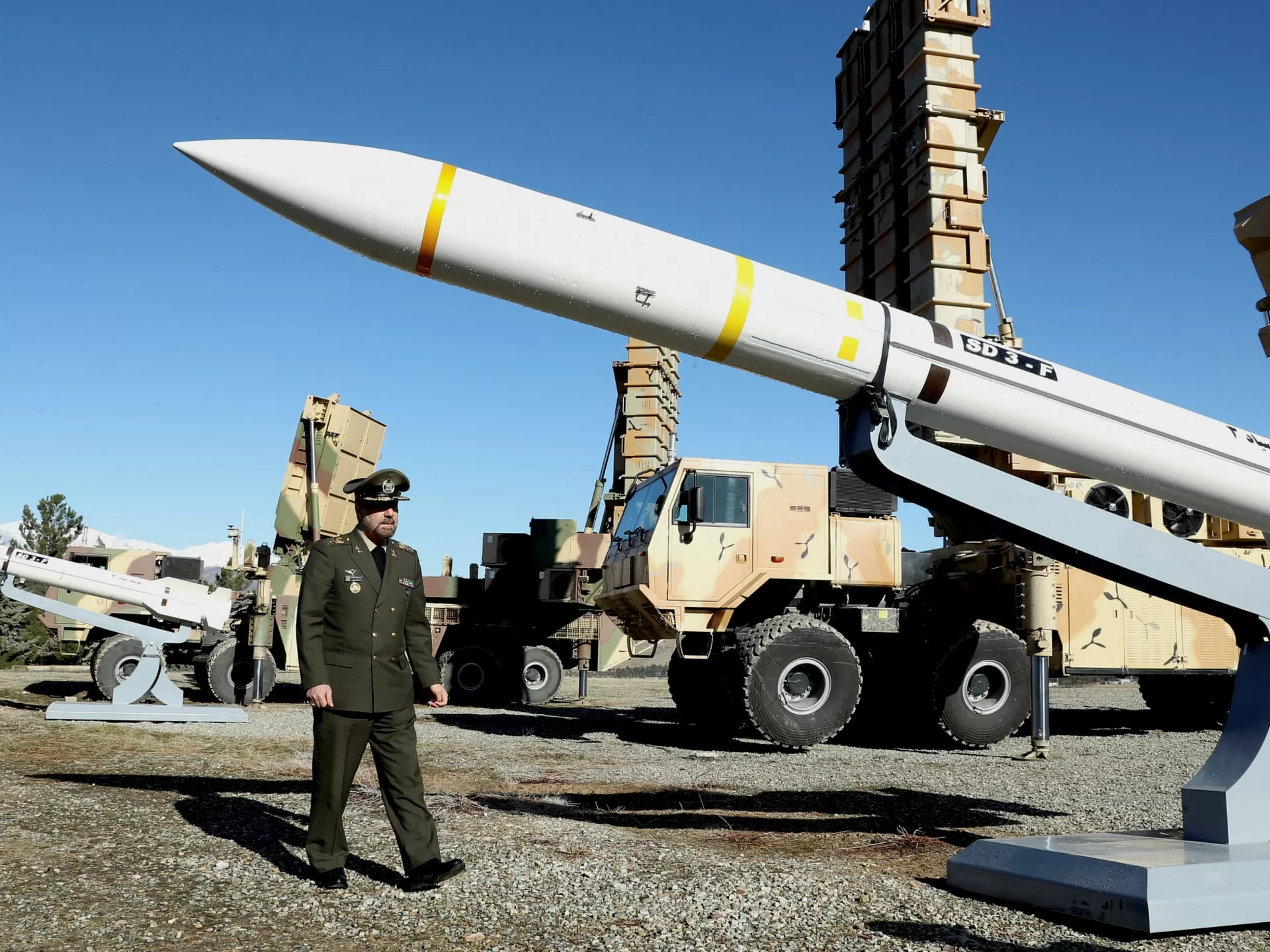Iranian military chief says overnight attack ‘achieved all its goals’, adding that US bases are under threat if it backs Israeli retaliation.
Iran has warned Israel of a larger attack on its territory should it retaliate against Tehran’s overnight drone and missile attacks, adding that the United States should not back an Israeli military action.
“If the Zionist regime [Israel] or its supporters demonstrate reckless behaviour, they will receive a decisive and much stronger response,” Iran’s President Ebrahim Raisi said in a statement on Sunday.
Raisi’s statement follows a similar warning by Iranian military chief, Major-General Mohammad Bagheri, who told state TV that a “much larger” response awaits Israel “if it retaliates against Iran”.
Bagheri said the Iranian attack on Israel “has achieved all its goals, and in our view the operation has ended, and we do not intend to continue”.
Earlier on Sunday, he warned the US that any backing of Israeli retaliation would result in its bases being targeted by Iran.
The commander of the Islamic Revolutionary Guard Corps (IRGC), Hossein Salami, also warned that Tehran would retaliate against any Israeli attacks on its interests, officials or citizens.
“From now on, whenever Israel attacks Iranian interests… we will attack from Iran.”
Meanwhile, Iran’s permanent mission to the United Nations justified Tehran’s response to Israeli “aggression” as a “legitimate defence” in accordance with the UN charter.
“The matter can be deemed concluded. However, should the Israeli regime make another mistake, Iran’s response will be considerably more severe,” said a statement.
It added that the US should “stay away” from the conflict, as it is an issue between Iran and Israel.
Al Jazeera’s Dorsa Jabbari, reporting from Tehran, said the Iranian attacks would be seen by its nationals as a “historic event in the country”.
“For over 40 years, Iran has been talking about going to war with Israel as one of its main adversaries,” she said, adding that celebrations were held in several Iranian cities over the air raids.
‘Significant response’
Tehran’s attacks late on Saturday were launched after a suspected Israeli air strike on its embassy compound in Damascus on April 1 killed IRGC members, raising the threat of a wider regional conflict.
On Sunday, Israel reported modest damage and reopened its airspace following the unprecedented direct attack.
The Israeli military said the armed forces had shot down more than 99 percent of the Iranian drones and missiles and were discussing follow-up options.
In a brief statement on X, Israeli Prime Minister Benjamin Netanyahu wrote, “We intercepted. We blocked. Together we will win.”
Meanwhile, Israel’s defence chief, Yoav Gallant, warned in a televised statement that the confrontation with Iran “is not over yet”.
Israel’s Channel 12 TV quoted an unnamed Israeli official as saying there would be a “significant response” to the attack.
Israel’s chief military spokesman, Rear Admiral Daniel Hagari, also called Iran’s actions “very grave”, saying in a televised briefing that they “push the region toward escalation”.
Despite the rhetoric, one Iranian analyst said the statements coming from Iran offer an opening for the opposing parties to back off from a wider confrontation.
Farzan Sabet, a senior researcher at the Geneva-based Global Governance Centre, said Israel “has a potential off-ramp” by making a “largely symbolic and non- or only slightly lethal response”.
But given Israel’s “historically low threat tolerance and practice of disproportionate response”, further retaliations and escalations could be seen, he said in an analysis posted on X.
